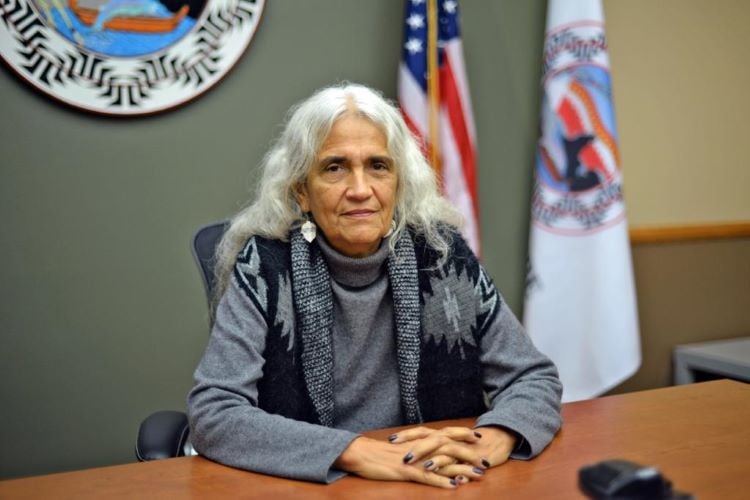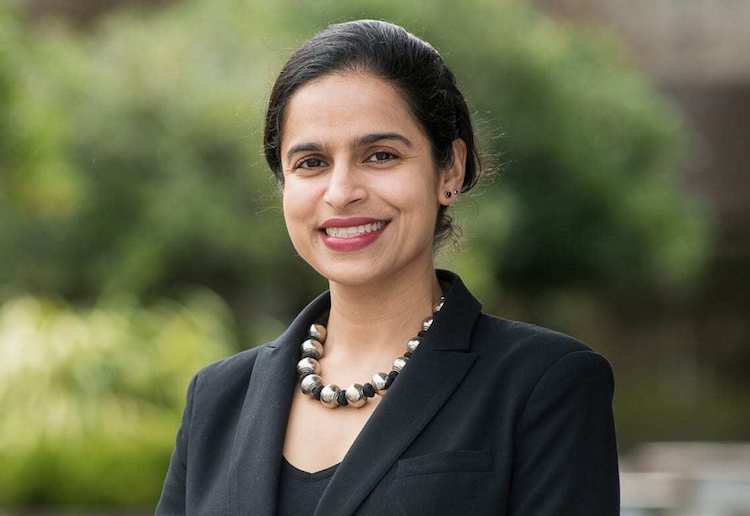
Decide discusses negotiating trauma and the regulation as chief tribal court docket choose of Yurok Nation
Family members Legislation
Determine discusses negotiating trauma and the regulation as chief tribal courtroom resolve of Yurok Nation

Select Abby Abinanti served as a judicial officer for the San Francisco Outstanding Court docket and has been a Yurok tribal court docket resolve contemplating the truth that 1997. Photograph by Matt Mais.
Select Abby Abinanti was the first tribal feminine to be admitted to the Level out Bar of California. For nearly two a very long time, she served as a judicial officer for the San Francisco Superior Court docket, and Abinanti has been a Yurok tribal court docket resolve contemplating the truth that 1997.
In our dialogue about negotiating trauma and the regulation, she speaks about being humiliated by her have trauma in laws faculty, her resistance to small enterprise as traditional though on the San Francisco bench, a telephone in opposition to extra ecological trauma and conclusions about what she didn’t ship again residence to her tribe as she commenced a culturally powered court docket docket software program.
Her court docket’s function acknowledges foundational trauma introduced on by U.S. settler laws, makes an attempt to treatment present-day agony because of interconnectivity, and it seeks to exemplify a special method of combating harm, historic and newest.
Mallika Kaur: Determine, may you share what it was prefer to be in laws school upfront of land acknowledgments grew to develop into standard or Indigenous Peoples Instances or Months ended up acknowledged?
Abby Abinanti: I did have quite a lot of troubles adjusting to regulation college. I can provide you only one illustration: I didn’t have ample funds, so I used to be malnourished and needed to go to the medical heart. I didn’t need to allow my dad and mom know given that they didn’t have any revenue, and I didn’t need to upset them. I used to be ravenous to demise. It was uncomfortable as a result of truth each individual would come to see me on the school pupil medical heart given that that they had by no means noticed malnutrition there! Then a nurse apparently generally known as the Indigenous American Center on the school and talked about you improved get about right here. The director arrived above and requested “Why did you do that? Why didn’t you seem to me?” I didn’t know that there was an Indian Coronary heart for the reason that laws college was particular person. In a while he defined, “You’re heading to go above there nearly each night … and you should have supper about there.” So I did. I had meals stuff, and that downside went away. However there have been being difficulties on the college with the dean. And I didn’t have any good buddies as a result of truth I didn’t know anyone until instantly after I noticed kids from dwelling [through the Indian Center].
 Mallika Kaur.
Mallika Kaur.Mallika Kaur: Did you might have a apparent motivation from early on to develop right into a regulation agency even with the troubles, foreseeable and unforeseeable?
Abby Abinanti: I not at all positively required to go to laws college. 3 outdated females ganged up on me and claimed, “Why actually don’t you go to laws school?” I said, “Why would I need to try this?” We skilled a dialogue, which, if you already know outdated Indian women, was not genuinely considerably of a dialogue. They said, “You’re the one an individual graduating, and we wish a lawyer.” Now that I’m an aged girl, I don’t positively head that half!
Mallika Kaur: As anybody who mentors different individuals going to regulation college, what strategies do you give them about how they negotiate their id, how they take into account about “the regulation,” from legacies of settler colonialist legal guidelines to inequitable tips of 2022, but in addition the guarantee of the laws?
Abby Abinanti: I convey to them, you simply acquired to do that and are available property. Know what you’ll be able to convey dwelling and what you have to not ship family now. You possibly can do quite a lot of glorious. We’ve bought to be able to barter this. And we’ve had some terrific victories with a few of our youthful authorized professionals. We’re more likely to have the best dam eradicating problem within the surroundings, and a younger regulation agency from proper right here, Amy Cordalis, led that. I essentially imply, what might be much better? And there’s an excellent deal to be carried out …. You already know, we survived. We ran and hid [from the White colonists], and that was superior. And I’m not criticizing anyone about that system, nevertheless it received’t do the job now. Primarily as a result of they in essence junked the place up in 170 yrs. We didn’t junk it up in 1000’s of years. There is no such thing as a location to run and conceal once more, so we’ve to have a particular method. We’ve to help them acknowledge location. That is your homeland. It’s your accountability.
Mallika Kaur: That relationality to space and to individuals is in distinction to the majoritarian life-style. What was it like so that you can function a commissioner within the San Francisco court docket docket life-style?
Abby Abinanti: Very effectively, [the U.S. courts] are fairly correct-spaced. We’re responsibility-based. So naturally, you’re more likely to have distinctive ways popping out of individuals two units since we’ve numerous value units. Occasionally individuals would say, “Effectively, you might have obtained to do that,” and I’m like, “No, I wouldn’t have to and I received’t.” I the second had a child earlier than me, some 11-year-old, and he’d gotten into a college struggle. They locked him up across the weekend. He was only a scrawny minimal child in juvenile hall in San Francisco, and his full household—his uncles, his father, all people—was in there on Monday morning. They skilled billed him with some felony. He skilled been locked up 3 to 4 days by then. And when the DA talked concerning the prices, all heated up, I reported, “OK, let me describe one factor to you: It’s not a felony. He didn’t have a gun. And he isn’t even tall ample to journey the teacup rides in Disneyland. Do you totally grasp me?” And after they began out disagreeing, I claimed, “OK, correctly, that’s what the appellate courts are for. Stage once more.” After which I questioned the kid to face up and stated, “Look driving you. Your father’s on this article, your uncles are listed right here. And none of them expended the weekend in jail. So the next time you get a very silly thought, go to the principal’s workplace and get in contact with them and query them what you actually ought to do, just because they after all know what to do and also you clearly didn’t know what to do. And your mom’s crying is that positively what you need?’ I reported, “I’m gonna ship you family, and I rarely ever need to see you as soon as once more.” And I didn’t.
Mallika Kaur: Are there specific strategies that assist preserve you within the actually excessive perform every inside and out of doors your tribe?
Abby Abinanti: At my age, you might have—primarily, we’ve—the custom. Once I was extraordinarily youthful, the dances began out to happen again. The tradition started to happen once more. [Before then], we needed to conceal the regalia and dance internet sites. The language has seem again once more and now it’s at the moment being taught within the colleges. I actually remorse not understanding my language. Earlier than COVID, I skilled employed a seventh grader to be my tutor, however I didn’t need her to proceed to maintain coming since I used to be involved for her total well being. So now I’ll probably get one other tutor to allow me.
Mallika Kaur: Do you talk about along with your staff about how they deal with their have emotional reactions to the get the job finished, any vicarious or secondary trauma?
Abby Abinanti: We communicate to every particular person different. We go dance collectively, do cultural pursuits collectively. And it’s like most individuals appreciates precisely the place Select Abby is. Everyone seems to be conscious of what I’ve completed and the problems I acquired into once I was youthful or didn’t get into. Our dance individuals are more and more highly effective. You already know, they’re the cultural gross sales alternatives. We’ve individuals at this time from the dance households who do the job within the courtroom who speak to every different. Somebody may say, “Oh, Determine Abby, you seem drained, so I’m going to offer you some root to soften away.” So I say, “Thanks that’s genuinely good of you, that helps.” It’s a much more of a household.
Mallika Kaur: The Violence In opposition to Girls Act’s trendy reauthorization carries unprecedented funding for tribal nations. You’ve already been enterprise pioneering initiatives from home violence in your tribe what do you hope to even additional amplify?
Abby Abinanti: Our tribe has the one state-qualified batterer intervention system of any tribe. I did it given that … I’m accountable for each equally sides of the difficulty on this article. Principally, I do know the traumas. The three traumas for our women and men: indentured as slaves, boarding instructional services and the massacres. We started to ask, “Which of individuals transpired to your family members?” given that which is precisely the place that conduct arrived from. It’s a actually prolonged system, however it’s been extremely attention-grabbing for women and men to appreciate primarily as a result of an entire lot of instances, they actually do not have an understanding of why they’re enterprise it. The initially issue is conveying [domestic violence] shouldn’t be passable. Then, two, the place did it come from? And three, how are we going to finish it?
Mallika Kaur: How do you equilibrium getting consideration to the troubles, for illustration, items of the reservation should not nonetheless linked to vitality, when not encouraging the number of trauma voyeurism that individuals from outdoor sometimes work together in though approaching tribes?
Abby Abinanti: I think about you simply go by way of your day and do one of the best you’ll be able to. And also you assist them. You enable them see the people primarily as a result of the individuals are strong, and so they’ve lived by way of quite a bit. We ended up by no means unfriendly, so we frequently skilled interplay. We nevertheless do try to welcome people. We’ve a ton of those that happen to the court docket. We check to speak with them and share our strategies, and further and extra of the opposite programs are copying half components of ours since they see that it’s going to work and we make that accessible to them. Some individuals wrestle with their very own trauma and so they don’t perceive it that’s aspect of what receives of their method. I take into account to help women and men improve bonds with other people and reconnect as a result of truth it’s going to severely help.
Mallika Kaur is a legal professional and writer who focuses on human authorized rights, with a specialization in gender and minority issues. She is the writer of the brand new e book Faith, Gender, and Activism within the Punjab Battle: The Wheat Fields Nonetheless Whisper. She teaches social justice courses on the School of California at Berkeley Faculty of Regulation.
